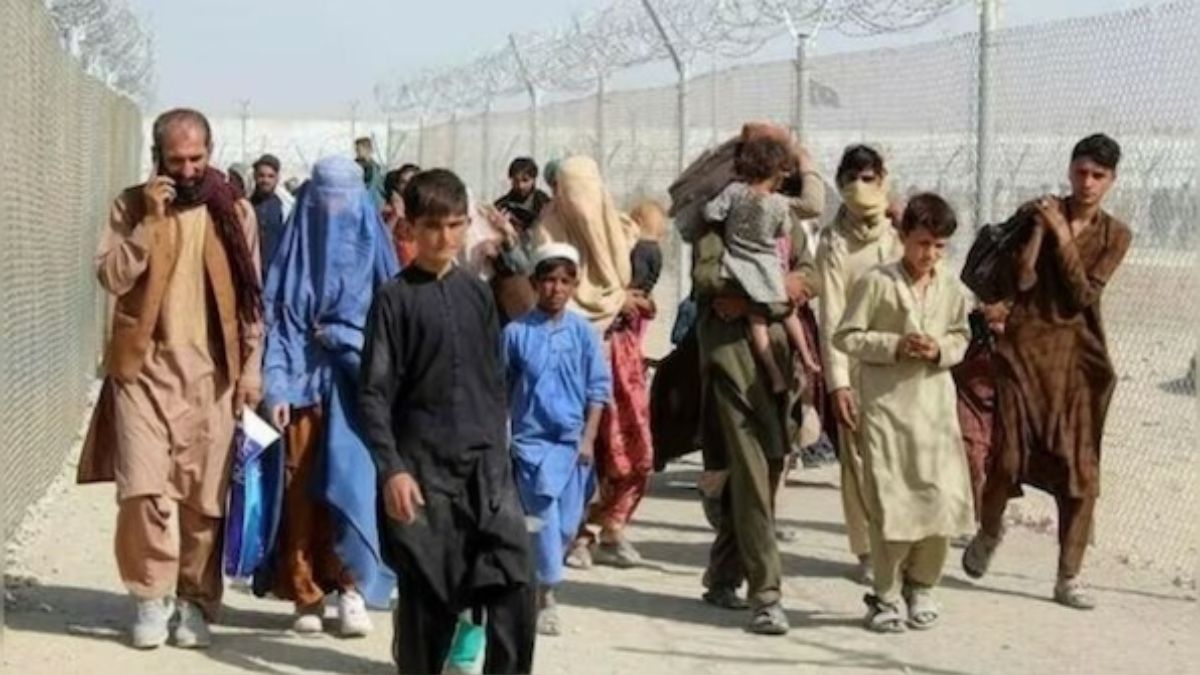In a refugee settlement on the outskirts of Karachi, Afghan families gathered on Sunday for Eid al-Fitr, not in celebration but in quiet anxiety. On Monday, millions who have lived in Pakistan for generations faced a deportation deadline and an uncertain, possibly dangerous future.
Since the Soviet invasion of Afghanistan in 1979, millions of Afghans have fled to Pakistan to escape violence and instability. While many have returned over the years, ongoing conflict and political turmoil have forced hundreds of thousands to seek refuge once again.
It’s the latest phase of a nationwide crackdown launched in October 2023 to expel foreigners living in Pakistan illegally, mostly Afghans. The campaign has drawn fire from rights groups, the Taliban government, and the UN.
The latest wave of displacement followed the Taliban’s takeover in August 2021, after the collapse of Ashraf Ghani’s U.S.-backed government. Among those fleeing were refugees promised resettlement in the United States.
Now, many face forced repatriation, with a deadline of March 31—a decision announced just last month, triggering widespread fear among Afghan communities.
While arrests and deportations were initially scheduled to begin on April 1, they have been postponed until April 10 due to the Eid al-Fitr holidays, according to government documents reviewed by The Associated Press.
Impact Shorts
More ShortsThe International Organization for Migration reports that around 845,000 Afghans have left Pakistan in the past 18 months. Authorities estimate that 3 million Afghans remain in the country, with 1.34 million holding Proof of Registration cards and 807,000 possessing Afghan Citizen Cards. An additional 1 million Afghans are undocumented.
Pakistan has said that it will ensure deported Afghans do not return. Afghan Citizen Card holders were required to leave Islamabad and Rawalpindi by March 31 or face deportation.
Those with Proof of Registration can stay in Pakistan until June 30, while Afghans bound for third-country resettlement must also leave Islamabad and Rawalpindi by March 31.
Authorities have said they will work with foreign diplomatic missions to resettle Afghans, failing which they will also be deported from Pakistan.
Tens of thousands of Afghans fled after the Taliban takeover in 2021. They were approved for resettlement in the US through a program that helps at-risk people because of their work with the American government, media, aid agencies and rights groups. However, President Donald Trump paused US refugee programs in January and 20,000 Afghans are now in limbo.
“No Afghan officials to be made part of any committee or formal decision-making process,” one of the documents said about the expulsion plans.
A spokesman for Afghanistan’s Refugee Ministry, Abdul Mutalib Haqqani, told The Associated Press that Pakistan was taking decisions arbitrarily, without involving the U.N. refugee agency or the Taliban government.
“We have shared our problems with them, stating that unilaterally expelling refugees is neither in their interest nor ours,” said Haqqani. “It is not in their interest because expelling them in this way raises hatred against Pakistan.
“For us, it is natural that managing so many Afghans coming back is a challenge. We have requested they should be deported through a mechanism and mutual understanding so they can return with dignity.”
It is not clear what will happen to children born in Pakistan to Afghan parents, Afghan couples with different document types, and families where one parent is a Pakistani citizen and the other is Afghan. But officials indicated to the AP that social welfare staff will be on hand to help with such cases.
Omaid Khan, 30, has an Afghan Citizen Card while his wife has Proof of Registration. According to Pakistani government policy, he has to leave but his wife can stay until June 30. Their two children have no documents, including passports or identity cards from either country.
“I am from Paktia province but I have never been there and I am not sure about my future,” he said.
Nazir Ahmed was born in the southwest Pakistani city of Quetta and has never been to Afghanistan. His only connection to the country was through his father, who died in Quetta four years ago.
“How can we go there?” said Ahmed, who is 21. “Few people know us. All our relatives live in Quetta. What will we do if we go there? We appeal to the Pakistani government to give us some time so we can go and find out, at least get some employment.”
With inputs from agencies
)